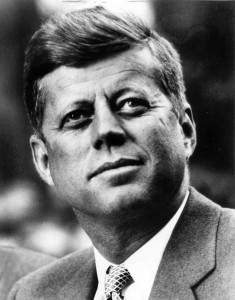http://www.youtube.com/watch?v=MV6UVl0q-Ww
This movie surprised me. I didn’t think it would be as good as it was. When I saw what it was about I thought it might be interesting to go and see, but I wouldn’t have gone out of my way to do so.
Coming out of the movie, the reason I found myself surprised was because of the intensity of how the story was told. Captain Phillips is highly engaging from start to finish. Even though you know how it’s going to end (based on the fact that it’s a true story), you’re never quite sure what is going to happen next.
The story starts out with Captain Rich Phillips (played by Tom Hanks in a masterful performance) flying to Salalah in Oman for his next assignment as captain of the ship, Maersk Alabama. This next trip will be to Mombasa in Kenya, traveling around the Horn of Africa, an area notorious for raids on ships by Somali pirates.
In the meantime we are taken to the desperate lives of would-be Somali pirates, impressionable young men willing to do anything to get in on the mega-cash on offer from their bosses. I have learned from those who have experienced poverty that it makes you do things you wouldn’t do in your right mind. It is said that desperate times produce desperate measures. These young Somalis, easily seduced by the promise of big dollars, will kill to get the money they want to get them out of the miserable existence.
The selection of the team of pirates to do the next job seemed almost farcical. It reminded me of the way you used to pick teams for a game of footy at lunchtime in primary school. People were basically shouting, “pick me, pick me!” as the captain moved amongst them seeing if they were up to the task.
The suspense in this movie really starts when the four pirates chosen for the task make their way out to the Maersk Alabama, traveling as it is like a black sheep away from the rest of the flock, away from other ships in the area, and therefore vulnerable to attack. Phillips soon realises that the four people coming out to him are pirates, and starts using his considerable guile to outwit the potential attackers. Knowing his ship hasn’t got the speed to outpace the pirates, we soon see that Phillips is not naïve about what he needs to do in this situation. Cunning as a serpent, he eventually tricks the pirates into giving up the chase. The battle has been won…for now.
Phillips’ crew soon remind him though that the pirates will be back, and sure enough, they are. And this time they don’t back off. Thus starts the life and death game of how to survive four men with machine guns taking over your cargo ship. This is where Captain Phillips and the crew of the Maersk Alabama realise that this is for keeps.
As the movie takes its twists and turns, with Phillips using more cunning to communicate with his hidden crew to outwit the pirates, the suspense grows as we cannot be sure how this is going to end. Soon though we see the US Navy get involved, and as with many things American, this is where it gets bigger than Texas. Continue reading
 I am spending some time in the US this Australian summer. It’s my fourth time here. My first impressions this time are that, for most people, life is a daily battle to get everything done. It’s about making the bucks, working so hard that we no longer know what we’re working towards. No one seems to stop and smell the roses.
I am spending some time in the US this Australian summer. It’s my fourth time here. My first impressions this time are that, for most people, life is a daily battle to get everything done. It’s about making the bucks, working so hard that we no longer know what we’re working towards. No one seems to stop and smell the roses.







